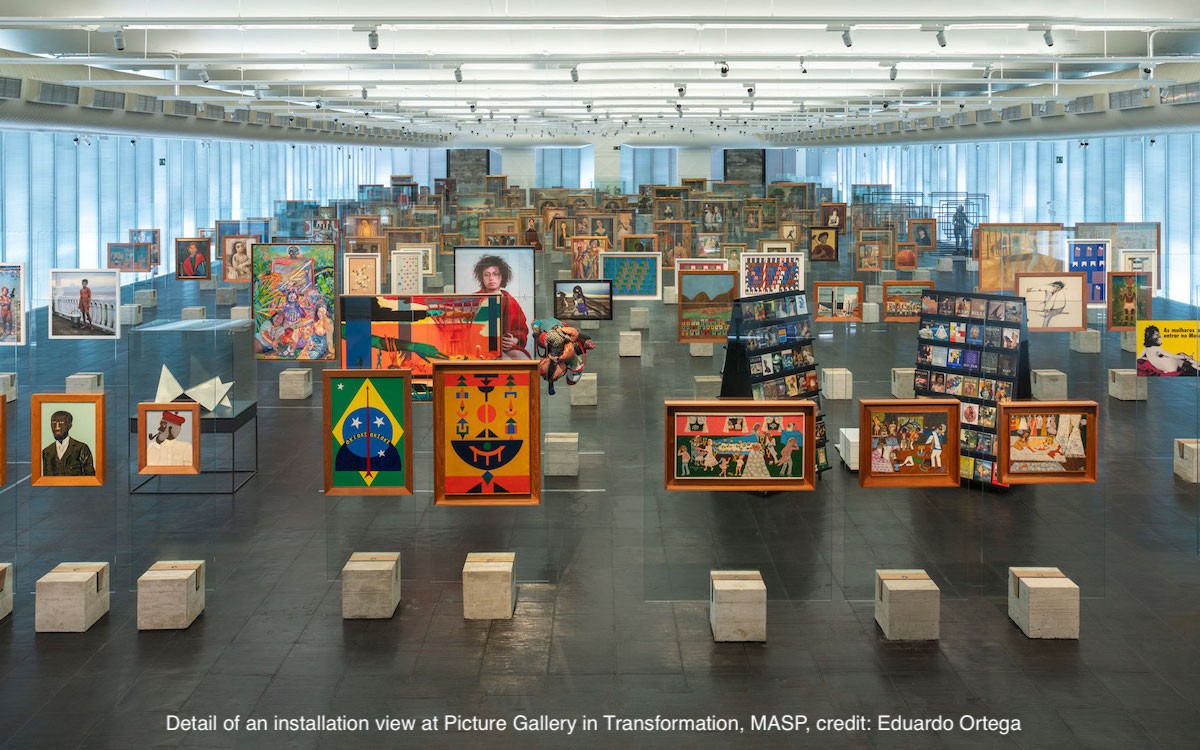Museums in the Pandemic Era

Almost 95% of museums around the world were closed due to the pandemic, according to a report by the International Council of Museums. To mark the occasion of World Museums Day, Columbia Global Centers | Mumbai organized a program entitled, “The Future of Museums in the Age of Pandemics” on May 25, 2021, that featured distinguished museum leaders in conversation with Dr. Ravina Aggarwal, Director of the Center. The event continued a series of programs by the Mumbai Center on the manner in which the arts and cultural organizations have dealt with and responded to the pandemic, and added to the Center’s broader array of programming on pressing Covid-19 related issues.
The pandemic has posed several challenges for museums, and the community of artists and cultural and conservation professionals connected to them, noted the three presenters, Dr. Sabyasachi Mukherjee, Director General of the Chhatrapati Shivaji Maharaj Vastu Sangrahalaya, Mumbai (CSMVS Museum), Ms. Tasneem Zakaria Mehta, Managing Trustee and Honorary Director of the Dr. Bhau Daji Lad Museum, Mumbai and Columbia Journalism School alumna, and Mr. Douglas Hegley, Chief Digital Officer of The Metropolitan Museum of Art, New York. They cited difficulties in protecting staff from illness and anxiety, maintaining objects and collections, scaling up technology and skilling their teams to adapt to digital operations and programs, and managing with the disruption in revenue streams.
The speakers presented strategies and best practices that were devised and implemented in their institutions during lockdown periods. These centered around effective communication and connecting through virtual channels, repurposing as well as innovating new programs to meet current realities and needs, and revising financial models while exploring new revenue opportunities. Mr. Mukherjee shared how the CSMVS museum had appealed to and received support from committed citizens in Mumbai, who saw the space as vital to the city’s soul. Panelists also discussed their virtual programs and activities, including online galleries and exhibitions, quizzes, competitions, public talks and discussions, and continuing academic courses. Focused programs for children, such as storytelling sessions, treasure hunts and workshops were also organized, and many of the programs were offered in multiple languages. All of them acknowledged that empathy, solidarity and support were the touchstones informing their practices. Emphasizing that museums must think about people first, Mr. Hegley said, “Without people, we’re just warehouses. It’s the people that make us living, dynamic places.”
Addressing post-pandemic directions for museums, panelists shared a consensus that new hybrid models of programs that included physical and virtual modalities would become more of a common stay in museum offerings. Ms. Mehta pointed out, however, that the primacy of the in-person experience offered at museums held its own charm and enrichment that could not be replaced by the virtual. Looking towards the future as museums expand and grow, she shared a vision for the museum as a space for inclusion, cultural deliberation, and continued research and scholarship in multiple fields. Agreeing with the importance of staying inclusive and relevant to diverse communities, Dr. Mukherjee remarked, “As the museum evolves and grows in popularity, it becomes more accountable to the different communities living in the city. The museum of the future will be a community space where people can see their own identity in terms of cultural continuity.”
The program was attended by over 330 participants including a number of students, cultural professionals, educators and researchers from around the world and was very well received, based on the lively question and answer session that followed the moderated discussion and the post-program feedback collected. “It was beautiful to hear the guests talk about their journey in keeping their museums open and flourishing as well as the public interaction that they had. They had all been through some trial process of seeing what content would work online and it was lovely to see them so passionately discussing how they found the right thing for their museum and their audience and the happiness they felt as the demand for those things grew. It was also a great panel of guests who complimented each other and provided a holistic vision of the situation that museums were facing,” wrote one participant.